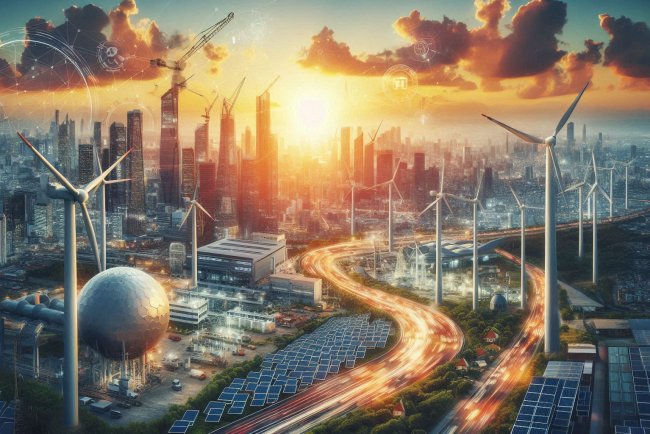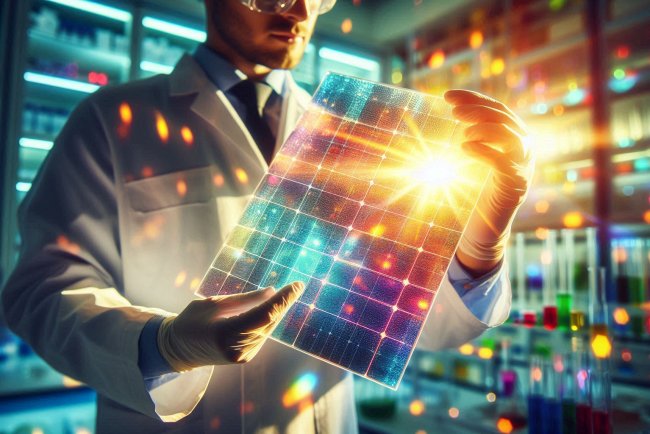Renewable Energy and Water Conservation
Learn about the importance of renewable energy and water conservation practices to help protect the environment and sustain our planet for future generations.

Renewable Energy and Water Conservation
Renewable energy and water conservation are two key aspects of sustainable living that are becoming increasingly important in today's world. Both are essential for preserving the environment, reducing carbon emissions, and ensuring a sustainable future for generations to come.
Renewable Energy
Renewable energy sources, such as solar, wind, hydroelectric, and geothermal power, are derived from naturally replenished resources that are environmentally friendly and sustainable. Unlike fossil fuels, which are finite and contribute to climate change, renewable energy sources offer a clean and efficient alternative for powering homes, businesses, and communities.
Solar energy is one of the most widely used renewable energy sources, with photovoltaic panels converting sunlight into electricity. Wind power harnesses the energy of the wind to generate electricity through turbines, while hydroelectric power utilizes the force of flowing water to produce electricity. Geothermal energy taps into the heat beneath the Earth's surface to generate power for heating and electricity.
By investing in renewable energy technologies, we can reduce our reliance on fossil fuels, decrease greenhouse gas emissions, and combat climate change. Transitioning to renewable energy sources not only benefits the environment but also creates jobs, stimulates economic growth, and enhances energy security.
Water Conservation
Water conservation is another critical component of sustainability, as freshwater resources are finite and essential for human survival, agriculture, and ecosystem health. By implementing water-saving practices and technologies, we can reduce water waste, preserve natural habitats, and ensure access to clean water for future generations.
One of the simplest ways to conserve water is through efficient water use in daily activities, such as taking shorter showers, fixing leaks, and using water-saving appliances. Installing low-flow faucets, toilets, and showerheads can significantly reduce water consumption without sacrificing comfort or convenience.
In agriculture, implementing drip irrigation systems, rainwater harvesting, and soil conservation practices can help reduce water usage, improve crop yields, and protect water quality. Sustainable farming techniques, such as crop rotation and cover cropping, can also help conserve water and prevent soil erosion.
In urban areas, green infrastructure solutions, such as rain gardens, permeable pavement, and green roofs, can help capture and filter stormwater runoff, reducing the strain on municipal water systems and preventing pollution of waterways.
Integration of Renewable Energy and Water Conservation
The integration of renewable energy and water conservation is key to achieving a more sustainable and resilient future. By combining clean energy technologies with water-saving practices, we can reduce our environmental impact, enhance resource efficiency, and build more resilient communities.
For example, solar panels can be used to power water pumps for irrigation in agriculture, reducing the reliance on fossil fuels and conserving water resources. Wind turbines can also be integrated with water treatment plants to generate electricity and offset energy costs while promoting water conservation efforts.
Furthermore, combining renewable energy sources with water-saving technologies, such as desalination plants powered by solar energy or wind power, can provide sustainable solutions for water scarcity in arid regions. These integrated systems can help address both energy and water challenges while promoting environmental sustainability and resilience.
Benefits of Renewable Energy and Water Conservation
The benefits of renewable energy and water conservation are numerous and far-reaching. By transitioning to clean energy sources and implementing water-saving practices, we can:
- Reduce greenhouse gas emissions and combat climate change
- Promote energy independence and security
- Protect freshwater resources and ecosystems
- Create green jobs and stimulate economic growth
- Enhance community resilience and sustainability
Overall, investing in renewable energy and water conservation is essential for building a more sustainable, equitable, and prosperous future for all. By prioritizing these initiatives, we can safeguard the environment, mitigate the impacts of climate change, and ensure a better quality of life for current and future generations.
What's Your Reaction?

















